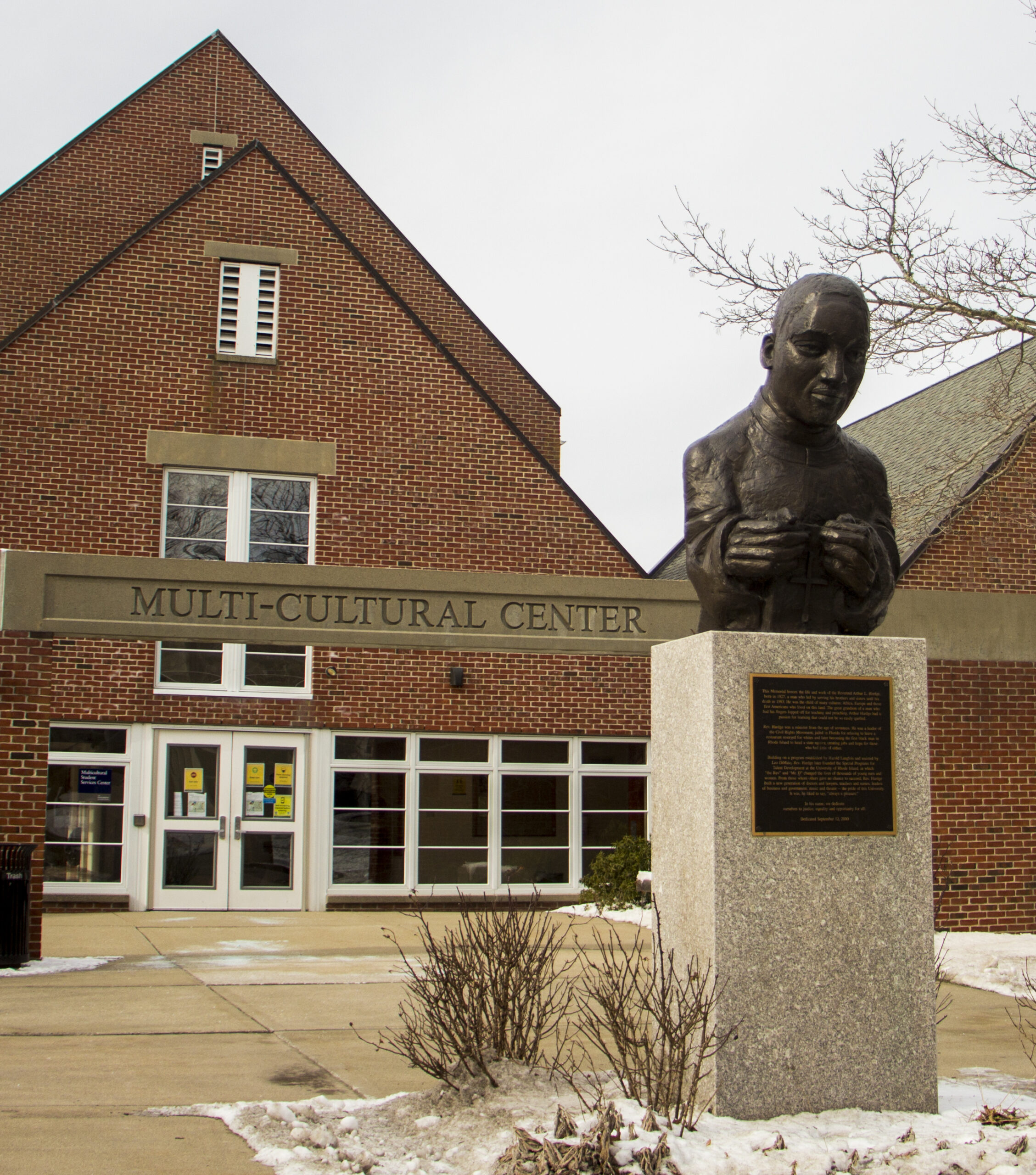After nearly a year of protests, URI’s multicultural organizations call for the University to improve the experiences of minority students. Photo by Greg Clark.
Many students involved in the University of Rhode Island’s multicultural and civil rights student organizations are calling for the University to improve the college experience for students of color.
In the wake of recent events in America, such as the Black Lives Matter protests, URI’s administration has condemned the injustice that minority groups have faced in the past year. These actions have been consistent with URI’s statement of diversity, which states that the University strives to “be an organization where diverse views, peoples and experiences are welcomed and respected.”
“[University administration needs] to be about [taking] action,” Naleen Camara, the secretary of the Multicultural Unity and Student Involvement (MUSIC), said. “You release all these statements, have all these seminars, but if you’re not showing that you’re actually about the change that you keep talking about, nobody is ever going to be convinced by that.”
Temi Ijaduola, the secretary of URI’s Black Student Union (BSU), also expressed the same feeling that statements aren’t enough. According to Ijaduola, URI’s administration has expressed interest in making students of color feel welcome, but as much as administrators want to help, many don’t fully understand the education barrier for students of color.
One of the biggest issues Camara sees with the promotion of multiculturalism at URI is the lack of diversity in faculty and staff.
“I just don’t get it, especially for the Harrington school,” Camara said. “This is supposed to be a super progressive college, we’re supposed to be the faces of the media, and you have to have a multifaceted view of life, and if you’re not having that, you’re not really doing much. We just need more Black staff members.”
In addition to URI’s Diversity Statement, the administration states they value all members who live and work in its residential communities. However, other students feel this statement is lacking, especially in accordance with funding diverse organizations.
Anfelique Washington, president of URI’s Cape Verdean Student Organization (CVSA), said that URI’s administration could fund multicultural organizations more than they do currently. The administration has been helpful to CVSA, but never “too helpful,” according to Washington. She said that their main focus should be making minorities happy at URI.
Students involved in multicultural organizations are passionate about increasing funding. Many students take pride in the work their organizations are doing for students at URI.
“[MUSIC is] just supposed to be a space where we all feel visible, and we bring the ideas of all of us out into the campus community,” Camara said. “We’re all supposed to be working together and love what we do. [We] at MUSIC and the other organizations are supposed to support each other. We’re just supposed to have each other’s back and with that representation and that visibility, students will see a very positive and peaceful environment to learn and grow and create with each other on the basis of culture.”
Jay Rumas, senior and President of the American Civil Liberties Union of URI (ACLU) agrees with Camara.
“Being part of an organization thats primary goal is to fight for social justice means it might not always be the most exciting thing to do with your time,” Rumas said. “But these people are very excited and passionate and we do a lot of good. The things we do aren’t necessarily hard to do but other people aren’t doing them. It’s important to have organizations that work as watchdogs to stick up for student rights.”
Ijaduola also noted that the work that BSU is doing is focused on creating small changes where they can right now.
“As much of a forward place [as] URI is, there are still some inequalities between students of color and students that are not of color,” Ijaduola said. “Our biggest thing currently is just educating on what struggles [students of color] go through every day. I can understand that some people wouldn’t understand where we come from, they don’t really understand the why. Just educating one person, educating one professor, educating a dean, or even President Dooley, that’s what matters.”
Rumas said that the ACLU is fighting for the rights of all students regardless of their background, tackling both individual student problems and university-wide issues. For three years, they fought for URI not to hold classes on election days. This semester, they are focusing on overturning the Narragansett Housing Ordinance.
Rumas said that the University still needs to work further on communicating and valuing multicultural and diverse student organizations, though he believes that the University is more receptive than it once was.
“I think it has gotten easier [to work with the University] since I was a freshman,” Rumas said. “I think there is more awareness and, while I can’t speak for everything on campus, I think so far when we’ve had civil liberty problems, they do resolve it. It does take pressure, there can be some improvement, but it has gotten easier.”





